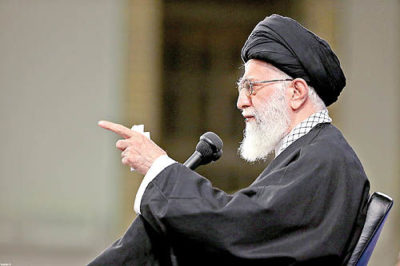Iran’s Supreme Leader, Ayatollah Ali Khamenei, has reportedly ordered retaliatory strikes against Israel following the assassination of Hamas leader Ismail Haniyeh in Tehran. This directive came during an emergency meeting of Iran’s Supreme National Security Council, convened shortly after the announcement of Haniyeh’s death. According to Iranian officials briefed on the matter, who spoke on condition of anonymity, Ayatollah Khamenei instructed military preparations for potential strikes on Israeli targets.
Throughout nearly ten months of conflict in Gaza, Iran has maintained a delicate balance, leveraging its allies and proxies in the region to exert pressure on Israel while avoiding full-scale war. Previous confrontations, such as April’s missile and drone assault on Israeli targets in Damascus, underscore Iran’s strategic approach to asymmetrical warfare. Despite these efforts, Israeli defenses largely neutralized the attack, limiting its impact.
Potential Response Strategies and International Reactions
Iranian military strategists are reportedly contemplating a combination of drone and missile strikes targeting military installations near Tel Aviv and Haifa. Emphasizing a distinction between military and civilian targets, Iranian officials aim to deliver a significant blow to Israel while mitigating the risk of escalation. Plans also include readiness for defensive measures in anticipation of possible retaliation from Israel or the United States.
In his public address following Haniyeh’s assassination, Ayatollah Khamenei reaffirmed Iran’s commitment to avenging the Hamas leader’s death, framing it as a duty to uphold national sovereignty. This stance aligns with broader Iranian rhetoric asserting its right to self-defense against perceived acts of aggression. Concurrent statements from Iranian government entities, including President Masoud Pezeshkian and the Foreign Ministry, have echoed these sentiments, emphasizing Iran’s readiness to retaliate decisively.
Regional Dynamics and Strategic Alliances
The assassination of Ismail Haniyeh, occurring amidst high-level diplomatic gatherings in Tehran, underscores the complex web of alliances within the Middle East. Iran’s support for Hamas, Hezbollah in Lebanon, the Houthis in Yemen, and various Iraqi militias collectively forms what they term the “axis of resistance.” Leaders from these groups, convened in Tehran for President Pezeshkian’s inauguration, now navigate heightened tensions following Haniyeh’s targeted killing.
As Iran prepares its response, international observers monitor developments closely, wary of potential repercussions across the volatile region. With geopolitical stakes elevated, the prospect of further escalation remains a critical concern for global security.
Security Breach Exposes Vulnerabilities in Iran
The assassination of Mr. Haniyeh marked a humiliating security breach for Iran, a nation striving to project strength but continually frustrated by its inability to prevent Israeli covert operations on its soil. The attack on Mr. Haniyeh, a prominent figure, at a highly secure Revolutionary Guards guesthouse in the capital on a day of heightened security, compounded the embarrassment. The incident not only highlighted the flaws in Iran’s security apparatus but also raised serious concerns about the safety of its top officials.
The outrage among Iranian government supporters and officials was palpable. Many expressed their dismay at the failure to protect Mr. Haniyeh, noting that only a select few senior security officials would have known his whereabouts. Social media was abuzz with calls for Iran to prioritize the safety of its leaders. Alireza Katebi Jahromi, a journalist and government supporter, voiced a common sentiment on X, urging, “Before revenge, first ensure the safety of the supreme leader.”
The Implications and Necessity of Retaliation
Iranian officials perceive the assassination of Mr. Haniyeh not merely as an opportunistic strike by Israel but as a significant affront to their national security. This incident suggests that anyone in Iran, regardless of their position, could be a target. Analysts underscore that retaliation is seen as essential not only to avenge Mr. Haniyeh’s killing but also as a deterrent against future Israeli attacks. The potential threat to other key figures, such as Hezbollah leader Hassan Nasrallah or Quds Forces commander Gen. Ismail Qaani, amplifies the urgency for a strong response.
Ali Vaez, the Iran director of the International Crisis Group, highlighted the strategic necessity of retaliation for Iran. “Iran’s likely believes it has no choice other than retaliating to deter further Israeli attacks, defend its sovereignty, and preserve its credibility in the eyes of its regional partners,” he stated. This stance reflects a broader objective: to maintain regional influence and safeguard the nation’s integrity against perceived external threats.














